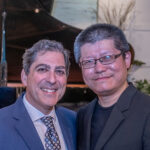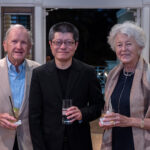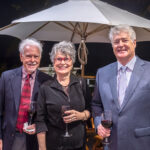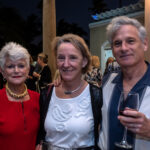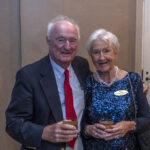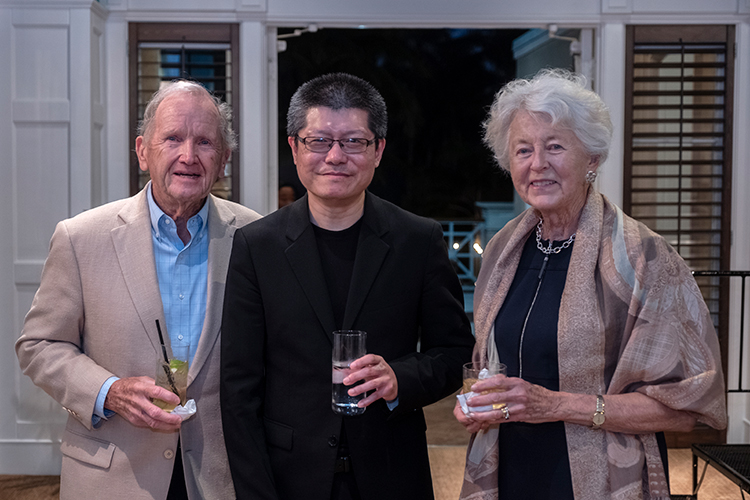
Supporters of the Atlantic Classical Orchestra were pleased to gather once again at the Orchid Island Beach Club for a French Connection-themed benefit concert, hosted by the Vero Beach Friends of the ACO, that featured concert pianist Tao Lin.
“We’re back; we are back at Orchid Island for the ninth time, believe it or not,” said Jean Beckert, Friends president, in welcome, before recognizing the staff, sponsors and underwriters.
The benefit had been canceled in 2020, followed in 2021 by a smaller gathering at the Riverhouse.
Before introducing Lin, David Amado, ACO music director, shared his excitement about the upcoming season, which opens in January.
The program begins with Leonard Bernstein’s “On the Town: Three Dance Episodes,” written for the Broadway show and movie “On the Town.”
“Bernstein does such a brilliant job in so much of his music of occupying that tiny little sliver of overlap between classical music, pop music and jazz,” said Amado.
Next is a Violin Concerto by Erich Korngold, an Austrian-born, Mozart-level prodigy who wrote a full-length ballet at age 11. He moved to Hollywood in 1934 and began writing concert-style film scores.
“His epic style matched the Hollywood style,” said Amado. “So when you hear his Violin Concerto in January, it’s going to sound like movie music, because he invented what that sounds like.”
The final piece is the Symphony No. 9 “From the New World,” written as a sort of tribute to American culture by Czech born Antonín Dvořák when he directed the National Conservatory of Music of America.
Tao Lin began his recital with two works that he said were written by three composers within just a couple of years of each other.
Of the first, Etude Op. 24 No. 1 “Aeolian Harp,” a beautiful solo piano work by Frédéric Chopin, Lin said, “He literally made the piano sound like a different instrument, the harp.”
The second, the heartfelt “Widmung,” was written by Robert Schumann for voice and piano as a wedding gift to his wife Clara and was later arranged as a piano solo by Franz Liszt.
Before playing two pieces by Chopin – Nocturne in C-sharp minor and Ballade No. 1 in G minor – Lin said he combined the two as they had both been featured in the film “The Pianist,” which documented the story of Polish concert pianist and Holocaust survivor Wladyslaw Szpilman.
In the movie, to convince the SS officer who found him hiding in the Warsaw Ghetto that he was indeed a concert pianist, he played the exceedingly difficult Ballade. Lin said he later learned that the piece Szpilman had actually played for the German officer was the Nocturne.
Lin’s last two solo pieces were two contrasting works by French composer Claude Debussy – the instantly recognizable “Clair de Lune” and “L’isle Joyeuse.” The later, Lin said, was written during a turbulent period in Debussy’s life, when he left his wife of five years and went on vacation to a “joyful island” with Emma Bardac, his next wife.
“Tao didn’t say that the coda of that Chopin ballad is really a pain in the butt. It’s really hard. And wow, that was incredible” said Amado, before joining Lin to play two four-hand pieces.
The first was the lovely first movement “Sleeping Beauty” from Ravel’s five-piece suite “Ma Mère l’Oye” (Mother Goose). The ACO will play the full suite in February. The second was a festive four-hand Spanish Dances piece by Moritz Moszkowski.
For more information on the upcoming season, visit AtlanticClassicalOrchestra.com.
Photos by Joshua Kodis
- Jim and Jeanne Manley.
- Lee and Jo Darrow.
- Wesley and Sandy Davidson.

